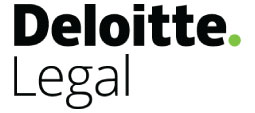The EU Directives on Work-life balance and on Transparent and predictable working conditions were introduced into the Polish national legislation on 26 April 2023 and brought about significant changes and obligations for the employers. What do they mean for businesses?
This report is designed to help companies to understand the requirements and how they have been implemented.
Implementation of EU Directive on Work-Life Balance (EU Directive 2019/1158)
Has the directive been implemented in the jurisdiction?
Yes.
What is the status of the implementation or draft implementation?
The new law amending the Labour Code entered into force on 26 April 2023.
What are the key changes for employers and employees?
- Paternity leave (“urlop ojcowski”)
- The leave is for use by a father to care for a child.
- It lasts for up to 2 weeks.
- The leave can be taken before a child reaches 12 months (previously 24 months).
- Preparation to terminate employment during a period of leave is forbidden.
- Remuneration for the period of leave will be 100% financed by the Social Insurance Agency.
- Parental leave (paid) (“urlop rodzicielski”)
- The length of parental leave is to be extended from 32 to 41 weeks following the birth of 1 child, and from 34 to 43 weeks if more than 1 child was born.
- Additional 9 weeks of leave must be taken by the other parent or will be lost (i.e., one parent cannot use the total amount of leave).
- Leave can be granted as one period or in up to 5 parts.
- Leave must be taken before the end of calendar year in which a child reaches 6 years of age.
- In general, additional leave is paid at 70% of an employee’s remuneration.
- Carers’ leave (unpaid) (“urlop opiekuńczy”)
- This is a new entitlement involving leave to care for
a family member or other person living in the
same household who needs care or assistance due to serious medical rasons. - It allows up to 5 days’ leave in a calendar year (they are lost if not used).
- It is unpaid leave.
- Protection
- During a period of leaves related to parenthood, employees are protected from their employment
being terminated. - The employer should take no action intended to prepare for the termination of employment.
- Time off from work due to force majeure
- Leave amounting to 2 days or 16 hours may be used in the event of unpredicted circumstances (force majeure).
- It is eligible for 50% of remuneration (financed by
the employer).
- Flexible working arrangements, additional rights
- Parents of children aged up to 8 may not, without their approval, work overtime, work at night, have “interrupted working time” or be sent on a business trip. (Similar entitlements were previously for parents of children aged up to 4.)
- Parents may apply for flexible working conditions, which consist of decreased working time or remote work, “interrupted working time”, an individual working time schedule or flexible working time arrangements.
- The employer’s decision concerning the above
requests may not be discriminatory and must be objectively justified.
What are the main actions for HR departments in preparing for the changes?
- Review and revise internal labour documentation
such as:- Work regulations and remuneration regulations;
- Off-boarding procedure (if this exists);
- Other employment policies and practices applicable to employees with relation to their parental entitlements;
- Templates of other documentation concerning, for example, consents to work overtime or to be sent on business trips;
- Application forms required to apply for new leave/time off.
- Training to acquaint HR teams with the new rules.
Implementation of EU Directive on Transparent and Predictable Working Conditions (EU Directive 2019/1152)
Has the directive been implemented in the jurisdiction?
Yes.
What is the status of the implementation or draft implementation?
The new law amending the Labour Code entered into force on 26 April 2023.
What are the key changes for employers and employees?
- Probationary period
The maximum length of a probationary period is linked with the length of the agreement that is expected to follow the probationary period:
- If the agreement that follows is supposed to be for a fixed term of shorter than 6 months, then the probationary period should not exceed 1 month;
- If the agreement that follows is supposed to be for a fixed term of at least 6 months but less than 12 months, then the probationary period cannot exceed 2 months;
- If the agreement that follows is supposed to be for a fixed term of at least 12 months or an indefinite term, then the probationary period can last for – 3 months (the same
as before).
A probationary period shorter than 3 months can be prolonged once by no more than 1 month if the employment contract allows this.
- Fixed-term contracts
- The terms of termination for a fixed-term contract are the same as for an indefinite contract – the employer nees to indicate an up-to-date, real and detailed justification for terminating the employment and consult on it with a trade union (if it operates at the company); such obligations previously were not applicable to fixed-term agreements.
- The employee involved will be entitled to reinstatement at the company (which was not previously the case for those employed on fixed-term contracts).
- Information on employment terms, which should be presented to an employee within 7 days as of starting work, must be supplemented by detailed information including:
- Daily and weekly working schedules;
- Breaks during work;
- Daily and weekly rest periods;
- Rules regarding overtime work and related compensation;
- The rules for switching from shift to shift;
- If the employee works in several places, the rules regarding movement between those places;
- Remuneration components other than those specified in the employment contract, as well as cash and in-kind benefits;
- Terms of contract termination: formal requirements, length of notice, date of appeal to the labour court;
- The right to training, if the employer guarantees such, and other rules resulting from the training policy (if there is such at the company).
- An employee with at least 6 months spent at the company will once a year be entitled to request a change to more stable working conditions (e.g. to be hired full time, or to be hired based on a contract for an indefinite term)
- If possible, the employer should accept such a request.
What are the main actions for HR departments in preparing for the changes?
- They should review their template of additional information and their employment policies and practices (especially those concerning the usage of probationary periods and fixed-term contracts).
By Katarzyna Sarek-Sadurska, Employment Law & Benefits Expertise Group Leader, and Magdalena Skwara, Senior Managing Associate, Deloitte Legal Poland
This communication contains general information only, and none of Deloitte Touche Tohmatsu Limited (“DTTL”), its global network of member firms or their related entities (collectively, the “Deloitte organization”) is, by means of this communication, rendering professional advice or services. Before making any decision or taking any action that may affect your finances or your business, you should consult a qualified professional adviser. No representations, warranties or undertakings (express or implied) are given as to the accuracy or completeness of the information in this communication, and none of DTTL, its member firms, related entities, employees or agents shall be liable or responsible for any loss or damage whatsoever arising directly or indirectly in connection with any person relying on this communication. DTTL and each of its member firms, and their related entities, are legally separate and independent entities.


